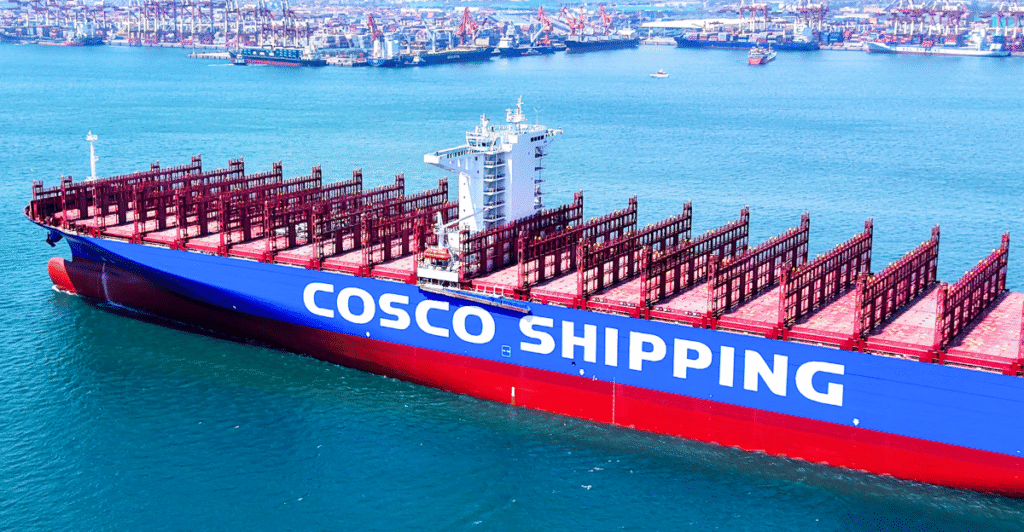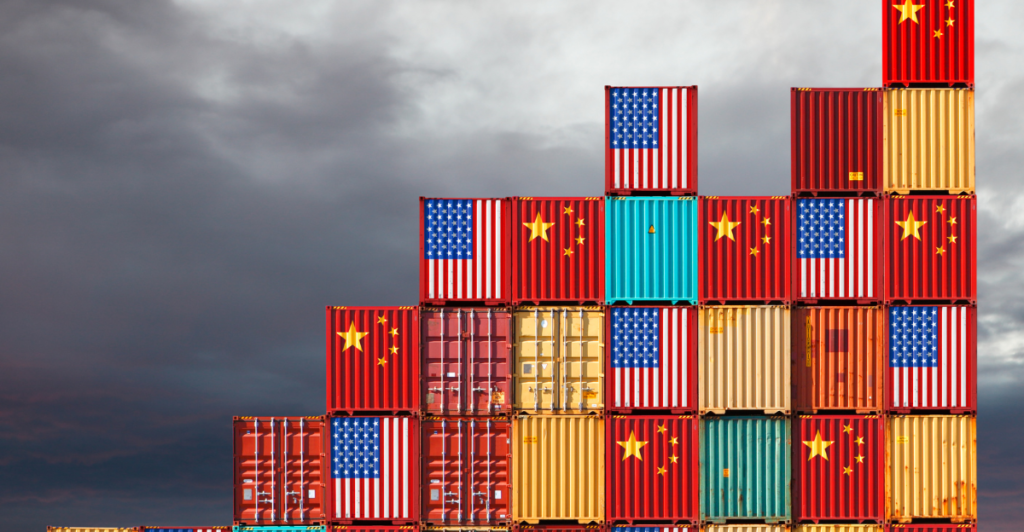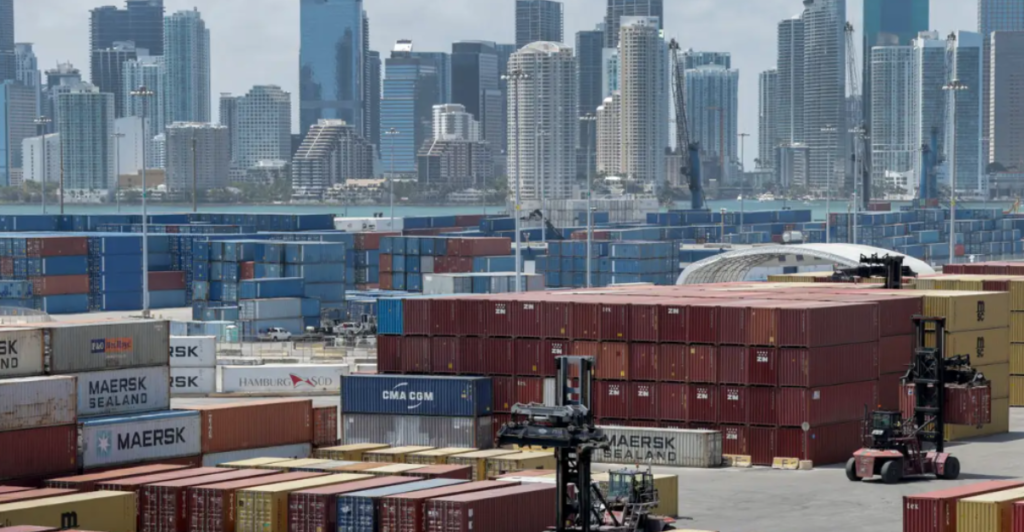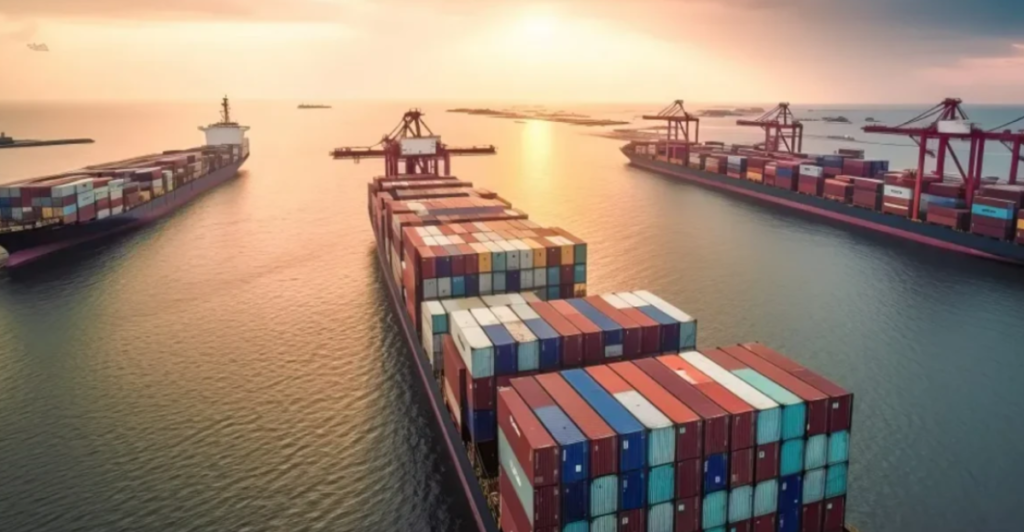
Once a bustling nexus of transpacific trade, Seattle’s port now stands eerily quiet. The imposition of a 145% tariff on Chinese imports by the U.S. has led to a significant decline in shipping activity. Major cargo transport companies like Expeditors International of Washington Inc. report a substantial decrease in China-to-U.S. shipping volumes due to ongoing tariff uncertainties and shifting global trade dynamics.
This downturn has affected the volume of goods passing through the port and has broader implications for the local economy and employment. The ripple effects are felt across various sectors, from logistics and warehousing to retail and manufacturing, highlighting the interconnected nature of global trade and local economies.
Tariffs Trigger Supply Chain Reconfigurations

The steep tariffs have compelled companies to reevaluate and adjust their supply chains. Many are shifting sourcing to countries like Vietnam and Mexico to mitigate tariff impacts.
This reconfiguration involves complex logistical changes, including establishing new supplier relationships, adapting to regulatory environments, and managing longer transit times. Such costly and time-consuming adjustments affect businesses’ agility and responsiveness to market demands.
Warehousing Woes Amid Import Uncertainty

In response to tariff-induced uncertainties, U.S. importers increasingly utilize bonded warehouses to defer duty payments, hoping for potential tariff reductions. While offering temporary financial relief, this strategy has led to a surge in demand for such storage facilities, driving up costs and creating logistical bottlenecks.
The increased reliance on bonded warehouses reflects businesses’ broader challenges in navigating the volatile trade landscape.
Front-Loading Frenzy and Its Aftermath

Anticipating tariff hikes, many companies engaged in “front-loading,” accelerating imports to avoid additional costs. This led to temporary spikes in port activity, followed by significant lulls as inventories were depleted.
The resultant volatility has strained logistics networks, disrupted supply-demand balances, and complicated business inventory management.
Small Businesses Bear the Brunt

Small and medium-sized enterprises (SMEs) are disproportionately affected by the tariffs. Lacking the resources to absorb increased costs or swiftly reconfigure supply chains, many SMEs face financial strain.
Some are forced to downsize, relocate operations, or, in dire cases, shut down entirely. This underscores the broader economic impact of trade policies on the backbone of the U.S. economy.
Shifting Trade Routes and Global Implications

The tariffs have prompted a realignment of global trade routes. Exporters redirect goods to alternative markets, and importers seek new sourcing destinations.
This shift affects the U.S. and global trade dynamics, influencing economic relationships and regional trade agreements. The long-term implications include altered trade balances and the potential emergence of new economic alliances.
Inflationary Pressures and Consumer Impact

The increased tariffs contribute to rising costs for imported goods, leading to inflationary pressures. Consumers may face higher prices for everyday items, from electronics to household goods. This erosion of purchasing power can dampen consumer spending, affecting overall economic growth.
Moreover, the burden is often heavier on low- and middle-income households, exacerbating economic disparities.
Challenges in Reshoring Manufacturing

While tariffs aim to encourage domestic manufacturing, reshoring presents significant challenges. High labor costs, infrastructure needs, and skilled labor shortages hinder the rapid relocation of production facilities.
Additionally, complex global supply chains are not easily replicated domestically, making the transition costly and time-intensive.
Transportation Industry Faces Headwinds

The transportation sector, integral to trade, is experiencing reduced freight volumes and increased operational costs due to tariffs. Trucking, rail, and shipping industries are adjusting to decreased demand and rerouted logistics, impacting revenues and employment within the sector.
The long-term effects include industry consolidation and transportation infrastructure investment shifts.
Economic Ripple Effects on American Finances

The cumulative impact of tariffs extends to the broader U.S. economy. Increased costs for businesses and consumers can lead to reduced spending, affecting GDP growth. Inflationary pressures may prompt monetary policy adjustments, influencing interest rates and investment decisions.
Furthermore, trade policy uncertainty can deter business investments, impacting job creation and economic stability. As the nation navigates these challenges, the importance of strategic economic planning and international cooperation becomes increasingly evident.
Discover more trending stories and Follow us to keep inspiration flowing to your feed!

Craving more home and lifestyle inspiration? Hit Follow to keep the creativity flowing, and let us know your thoughts in the comments below!
